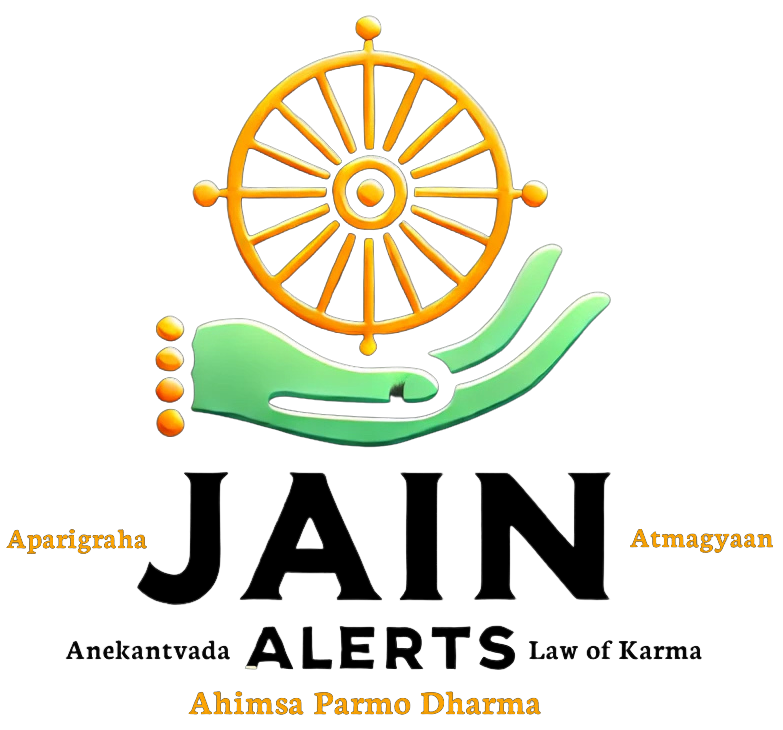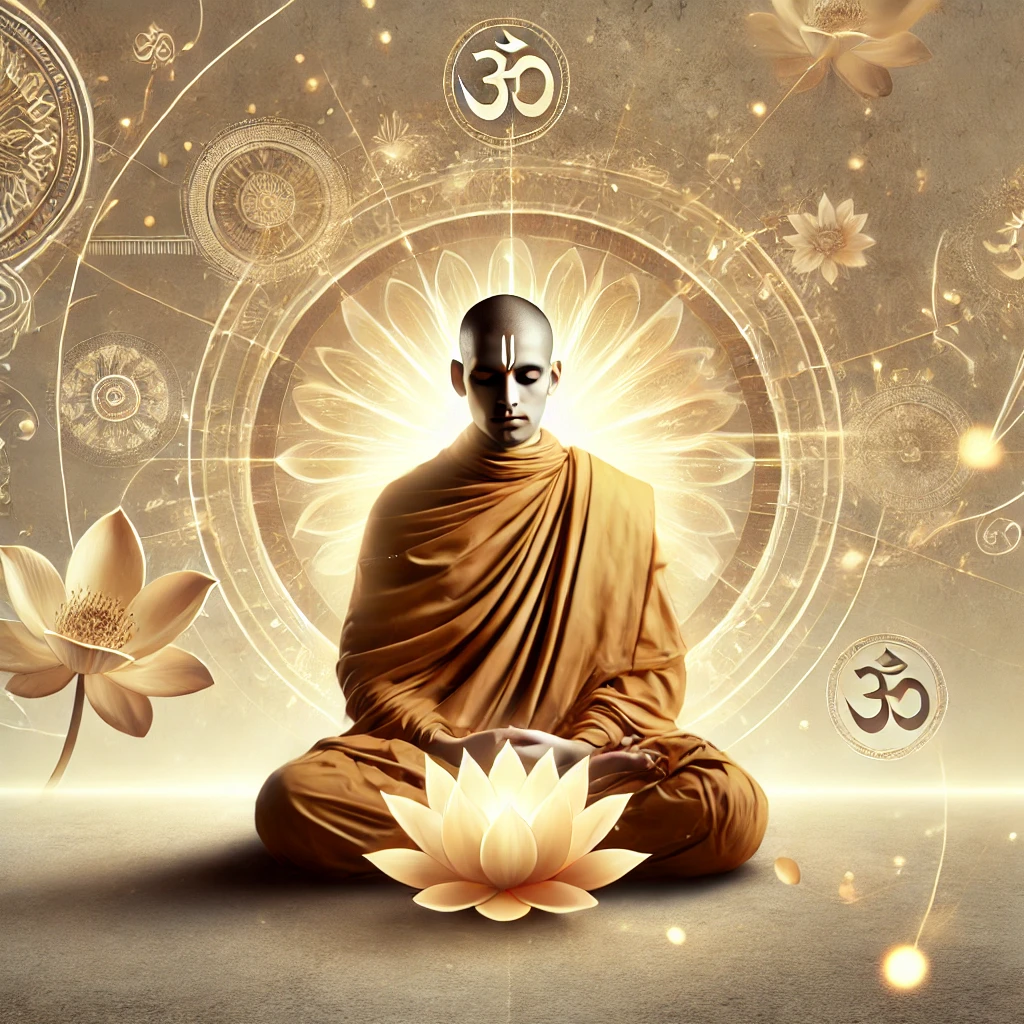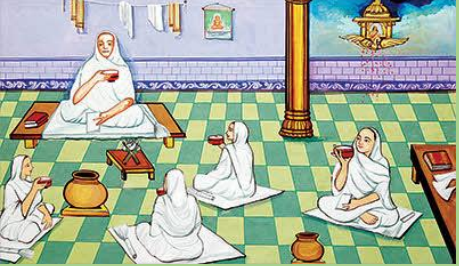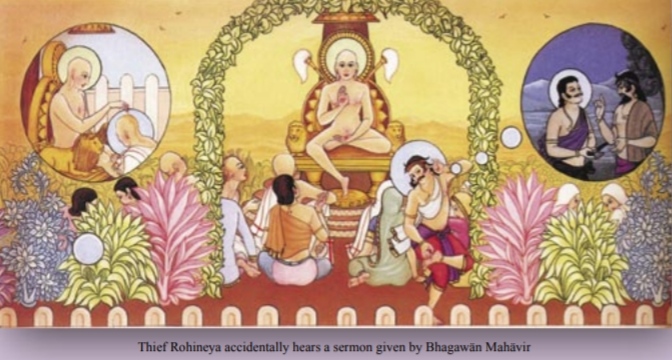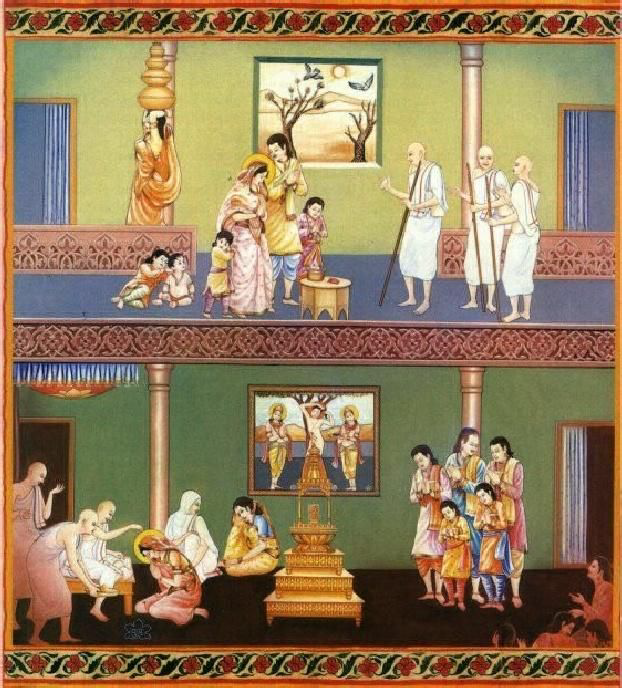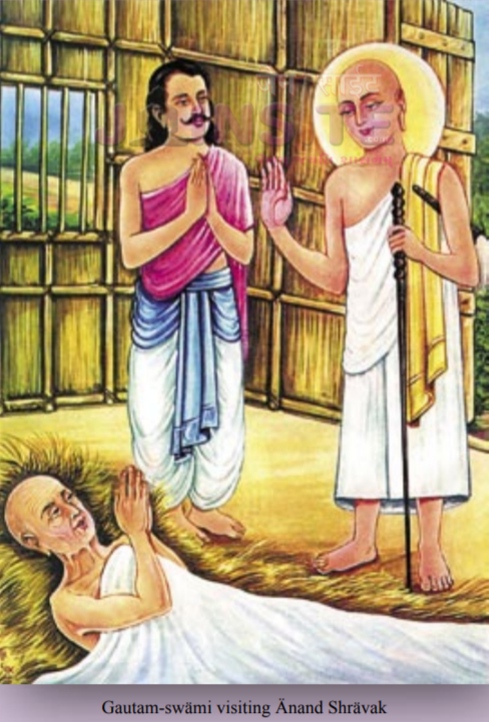What is Happiness? A Jain Perspective
सच्चा सुख क्या है? – जैन दृष्टिकोण
हर जीव सुख चाहता है और दुख से डरता है, लेकिन प्रश्न यह है कि सच्चा सुख क्या है? सच्चे सुख के स्वभाव को समझे बिना, सुख की खोज अर्थहीन हो जाती है।
अधिकांश लोग सुख को इंद्रिय सुखों से जोड़ते हैं। जीवन को तब सुखी माना जाता है जब यह भौतिक सुविधाओं से भरा हो—पोषणयुक्त भोजन, मौसम के अनुसार कपड़े, आधुनिक घर और वैज्ञानिक प्रगति। लेकिन क्या इन सभी सुविधाओं के बाद भी वास्तविक सुख पाया जा सकता है? यहाँ तक कि ऐसी जगहों पर, जहाँ ये सभी सुविधाएँ हैं, लोग बेचैन, चिंतित और असंतुष्ट रहते हैं। यह दर्शाता है कि सच्चा सुख भौतिक वस्तुओं में नहीं है।
कुछ लोग यह कहते हैं कि सुख हमारी कल्पना में है। उदाहरण के लिए, एक व्यक्ति, जिसके पास दो मंजिला घर है, अपने पाँच मंजिला मकान वाले पड़ोसी को देखकर दुखी हो जाता है, लेकिन अपने झोपड़ी वाले पड़ोसी को देखकर सुखी महसूस करता है। यह विचार दर्शाता है कि सुख और दुख वस्तुओं में नहीं बल्कि हमारी मानसिक स्थिति में हैं।
लेकिन क्या यह दृष्टिकोण सही है? क्या कल्पना के आधार पर कोई वास्तविक सुख प्राप्त कर सकता है? जैन दृष्टिकोण में इसे वास्तविक सुख नहीं माना जाता, क्योंकि यह केवल अहंकार को संतुष्ट करता है और दूसरों के दुख को अनदेखा करता है।
इच्छाएँ भी सुख के मायने में प्रमुख भूमिका निभाती हैं। कई लोग मानते हैं कि इच्छाओं की पूर्ति से सुख प्राप्त होता है। लेकिन इच्छाएँ अनंत हैं और एक पूरी होने पर दूसरी उत्पन्न होती है। इच्छाओं की पूर्ति से सुख पाना एक मृगतृष्णा के समान है। सच्चा सुख इच्छाओं के त्याग में है, न कि उनकी पूर्ति में।
जैन दर्शन के अनुसार, सच्चा सुख आत्मा का स्वाभाविक गुण है। इसे बाहरी वस्तुओं या शरीर में नहीं, बल्कि भीतर आत्मा में खोजना चाहिए। आत्मा, जो शाश्वत आनंद का भंडार है, सच्चे सुख का स्रोत है। जब हम बाहरी वस्तुओं से अलग होकर आत्मा के साथ एक हो जाते हैं, तभी हम सच्चे सुख का अनुभव करते हैं।
सच्चा सुख शब्दों में समझाया नहीं जा सकता; यह एक व्यक्तिगत अनुभव है। जैन शिक्षाएँ हमें यह सिखाती हैं कि आत्मा के अनुभव के बिना सच्चा सुख प्राप्त नहीं किया जा सकता।
अधिक प्रेरणादायक शिक्षाओं के लिए पढ़ें जैन कहानियाँ।
What is Happiness? – A Jain Perspective
All living beings desire happiness and fear pain and grief, but the question remains: what is real happiness? Without understanding its true nature, the pursuit of happiness becomes meaningless.
For most, happiness is associated with sensory pleasures. Life is considered happy if it is filled with material comforts—nutritious food, seasonal clothing, modern homes, and scientific advancements. These aspirations often define happiness for the masses. Yet, even in societies that have achieved such comforts, people remain restless, worried, and unhappy. This raises an important question: does real happiness exist in material possessions and sensory pleasures?
Some philosophers argue that happiness lies not in possessions but in our imagination. They cite examples of individuals who feel happiness by comparing themselves to those with less. For instance, a person in a two-story house feels unhappy when looking at a neighbor’s five-story building but content when comparing themselves to someone in a smaller cottage. This notion suggests that happiness is a state of mind rather than a reality rooted in possessions.
However, is this perspective truly valid? Can one genuinely derive happiness by imagining themselves superior to the less fortunate? This perspective promotes pride and ignores the struggles of those in poverty. True happiness cannot stem from such a superficial comparison.
Desires also play a significant role in the human understanding of happiness. Many believe that fulfilling desires leads to contentment. Yet, the nature of desires is eternal—they never end. When one desire is fulfilled, another arises, creating an unending cycle. Satisfaction of desires, therefore, is like chasing a mirage in a desert. Real happiness cannot exist in a life dominated by ever-changing desires.
Jain philosophy offers a profound understanding of happiness. Sensory pleasures, far from being a source of joy, are a form of unhappiness because they breed restlessness. True happiness lies in the absence of desires, not their fulfillment. By reducing desires, one reduces restlessness, and complete freedom from desires leads to complete happiness.
Happiness is an inherent attribute of the soul. It cannot be found in external objects or the body but within oneself. Just as consciousness is an attribute of the soul, so too is happiness. Those who seek happiness externally will remain restless, for they are searching in the wrong place. True happiness is experienced by turning inward and connecting with the eternal bliss of the soul.
Real happiness cannot be demonstrated or explained in words; it is a personal experience. By detaching from non-self entities and focusing on the self, one can achieve this state of bliss. The soul, being a repository of eternal joy, does not need to seek happiness elsewhere—it simply needs to experience itself.
The ultimate answer to questions about happiness lies in introspection and self-experience. True happiness is not something to be attained from the outside world but is realized within. As Jain teachings suggest, by pondering life’s fundamentals and experiencing the soul, one can achieve true and everlasting happiness.
For more spiritual teachings, read inspiring Jain Stories.
